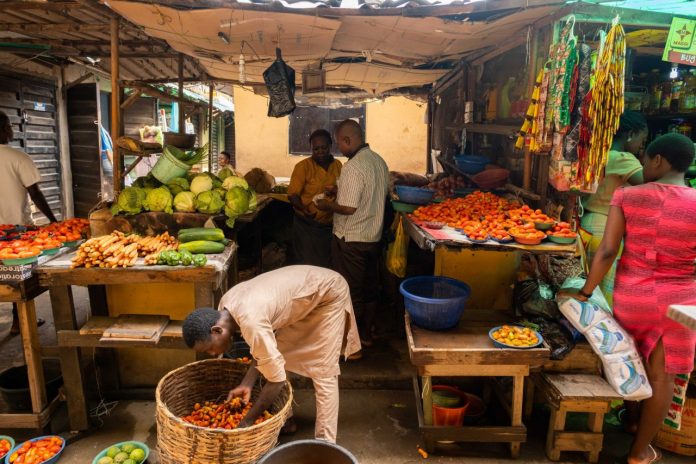The Federal Government (FG), has cautioned Nigerians against taking the International Monetary Fund (IMF) seriously, as it assured that measures were in place to avert the predicted food insecurity next year (2023).
IMF, in its ‘Nigeria: Staff Concluding Statement of the 2022 Article IV Mission’ report cited by BizWatch Nigeria, had asked Nigerians to brace up, as it predicted that food prices would soar high in the election year.
According to the fund, while the flooding is responsible for the destruction of agricultural produce in affected areas in Nigeria, which include Kogi, and Benue states, food prices would worsen in the election year also due to the volatility in the value of the naira, the Federal Government’s continued dependence on the Central Bank of Nigeria (CBN) for financing its budget deficit, and climate change.
“The effects of recent flooding and high fertilizer prices could become more entrenched impacting negatively both agricultural production and food prices in 2023.
“Similarly, further volatility in the parallel market exchange rate and continued dependence on central bank financing of the budget deficit could exacerbate price pressures. In the medium term, there are downside risks to the oil sector from possible price and production volatility, while climate-related natural disasters pose downside risks to agriculture,” the report read.
Addressing the concerns on food insecurity as predicted by the IMF, the Federal Ministry of Agriculture and Rural Development (FMARD) said there was no need for panic among citizens across the country.
“People shouldn’t be afraid of any food crisis. The minister has explained this and so people should not express fear about their (IMF) projections,” Director of Information, FMARD, Joel Oruche, was quoted as saying.
In a document on the Long/Short Term Measures to Ameliorate the Disruptions of Food Production and Supply in Nigeria, the ministry said it was implementing various interventions to mitigate the anticipated disruptions occasioned by the recent floods.
The FMARD said it had distributed “assorted food commodities from the Federal Government strategic food reserve to the vulnerable and flood victims through the Federal Ministry of Humanitarian Affairs, Disaster Management and Social Development.”
















